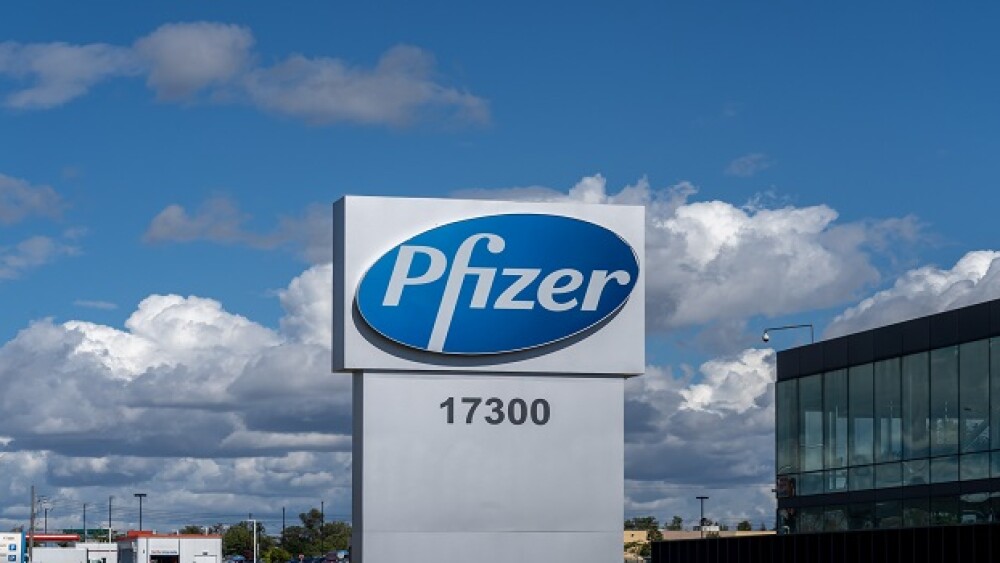Pfizer’s RSV vaccine has produced promising data with an efficacy of 85.7% in adults over 60 with a more severe form of the disease. Data in hand, Pfizer plans to head to the FDA this Fall.
Courtesy of JHVEPhoto/GettyImages
Pfizer announced that the Phase III clinical trial for its respiratory syncytial virus (RSV) vaccine has produced promising data with an efficacy of 85.7% in adults over 60 with a more severe form of the disease.
The trial, named RENOIR (RSV vaccine Efficacy study iN Older adults Immunized against RSV disease), investigated Pfizer’s RSV prefusion F vaccine candidate (RSVpreF) in adults over 60. As of this writing, the study has approximately 37,000 participants worldwide.
The vaccine is composed of equal amounts of recombinant RSV perfusion F from subgroups A and B and was informed by research conducted by the NIH. The NIH found that RSV uses the crystal structure of perfusion F, a form of the viral fusion protein (F), to enter a human cell.
After testing many versions of the stabilized perfusion F protein, Pfizer identified the candidate that elicited a strong anti-viral immune response to use in its vaccine.
RSV is a viral infection that causes typical cold-like symptoms in most people. A runny nose, decreased appetite, coughing, sneezing, fever and wheezing are the most common of these symptoms. For most people who develop RSV, it will go away on its own within a week or two.
However, RSV can become more severe than the mild symptoms outlined above, especially in young children and older adults. When left untreated, it can cause bronchiolitis (inflammation of the small airways of the lung) and even pneumonia (infection of the lungs). In these more severe cases, RSV is estimated to lead to 360,000 hospitalizations and 24,000 deaths in older adults (60+) in developed countries annually.
“Scientists and researchers have worked to develop RSV vaccines with little success for over half a century. These findings are an important step in our effort to help protect against RSV disease, and we look forward to working with the FDA and other regulatory agencies to make this vaccine candidate available to help address the substantial burden of RSV disease in older adults.” Annaliesa Anderson, Ph.D., SVP and chief scientific officer, vaccine Research and Development at Pfizer, said in a statement.
In March, Pfizer announced that RSVpreF received Breakthrough Therapy Designation from the FDA for the prevention of RSV-associated lower respiratory disease in infants from birth up to six months by active immunization of pregnant women. This designation was primarily informed by the results of Pfizer’s Phase IIb study.
Pfizer is not the only party in the race to develop an RSV vaccine. GSK, Johnson & Johnson and Moderna are all in the late stages with their respective RSV vaccine candidates. Of these three companies working on a vaccine for RSV, GSK is developing one specifically for expectant mothers to help protect newborns, J&J is in the midst of Phase III trials for adults over 65 and Moderna has FDA Fast Track status for its mRNA vaccine for adults over 60.
Based on the findings of this efficacy analysis, Pfizer intends to submit for regulatory approval in Fall 2022.
Featured Jobs on BioSpace





